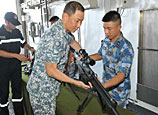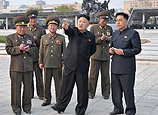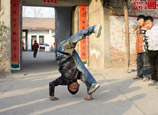
UNESCO, the Chinese Ministry of Culture, the national committee of UNESCO and the municipality of Hangzhou will co-organize an international congress on the role of culture in sustainable development.
Titled Culture: Key to Sustainable Development, the congress will take place in Hangzhou on May 15-17. The event is expected to be a landmark in the global debate on shaping the global development agenda beyond 2015.
UNESCO has long advocated that culture is essential to sustainable development because of the resources it embodies for individuals and communities as a source of innovation and creativity.
"Culture is what makes us who we are, it gives us strength, and it provides answers to many of the challenges we face today," said Irina Bokova, UNESCO director-general.
"This power is increasingly recognized by countries across the world. We need now determined political will to act on this recognition, to mainstream culture in all development strategies and programs at global, regional and local levels, to integrate culture within national development goals."
UNESCO insists culture must be seen as a driver of development, led by the growth of the cultural sector and creative industries and the benefits arising from safeguarding tangible and intangible cultural heritage, as well as the benefits of investing in creativity.
The congress will bring together 450 policy-makers, leaders from development institutions, representatives of the private sector, civil society, academia, and the arts. It will examine all of these aspects of culture for development and lay the groundwork for a strong post-2015 development agenda.
The Congress will adopt the Hangzhou Agenda on Culture and Sustainable Development, and is expected to yield evidence-based arguments for ways in which culture can strengthen sustainable development, providing substantive input to the discussions on the framework for the post-2015 development agenda.
The Hangzhou Congress will feature high-level thematic discussions and panels on a wide range of subjects including "Culture in the post-2015 sustainable development agenda", "Peace and Reconciliation: how Culture makes the Difference", "Culture, Wellbeing and Human Development" and "Cultural Approaches to Addressing Poverty".


















![]()
